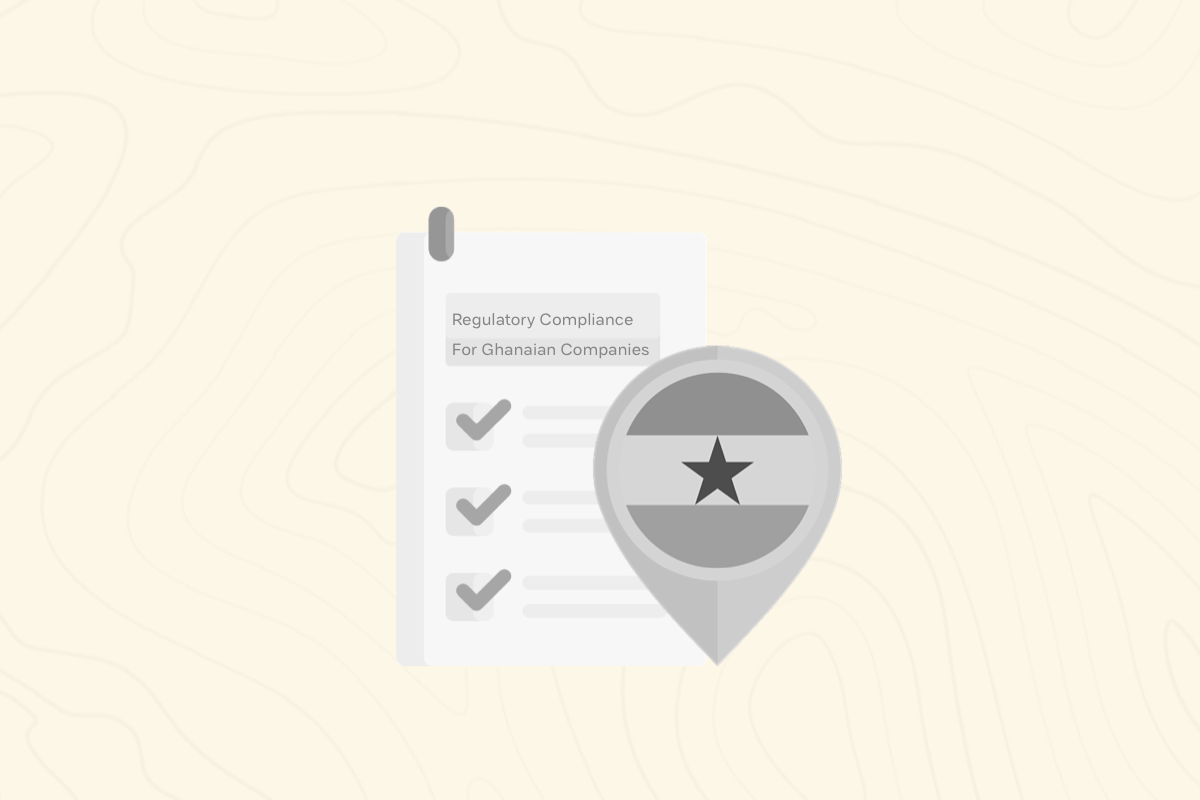As Africa’s largest economy and most populous nation, Nigeria presents a wealth of opportunities for businesses seeking to serve regional and global markets. However, its dynamic regulatory landscape can pose challenges for companies to navigate consistently and compliantly over the long term.
Operating in Nigeria requires continual monitoring and adherence to a complex web of rules across various compliance domains—from initial business registration and taxation, to industry-specific licensing, employment laws, and safety standards. Non-compliance can expose firms to penalties, fines or even loss of operating licenses if left unaddressed.
At Norebase, we understand navigating this environment requires dedicated expertise and integrated technology solutions. That is why our AutoComply platform, combined with Norebase’s business registration services, form a comprehensive offering to simplify your compliance globally. By ensuring adherence across legal, tax and regulatory requirements, we aim to help businesses unlock Nigeria’s opportunities while focusing on their core growth objectives.
What Are the Business Structures in Nigeria?
The most common business structures in Nigeria are:
Sole proprietorship
A sole proprietorship is a business owned and managed by one person. This is the simplest and most common business structure in Nigeria. For a sole proprietorship, the business name must be registered if it consists of more than:
- The surname of the individual;
- The surname and first name of the individual;
- The surname and initials of the first name of the individual.
For instance, If Nelson Wayi carries on business as “Nelson’s fries” that name is regarded under the law as a business name and must be registered.
But if he carries on business simply as N. Wayi, he would not need to register it as a business name.
To register a business name as a sole proprietorship you need:
- To register the business with Corporate Affairs Commission (CAC). You can register your business name on Norebase.
- A government issued I.D card such as the National I.D card or voters card
- Details regarding the business such as the address and name of business
Partnership
A partnership is a business owned and managed by two or more people. For a partnership, the business name must be registered if the name consists of more than:
- The surnames of the partners;
- The surnames and first names of the partners;
- The surnames and initials of the first names of the partners.
For instance, If Sane Bartholomew, Rochas Okorocha, and Wuse Wombi carry on business as “Bartholomew, Okorocha, and Wombi” OR “Sane Bartholomew, Rochas Okorocha, and Wuse Wombi” OR “S. Bartholomew, R. Okorocha, and W. Wombi” then there would be no need to register a business name.
However, if Sane, Rochas, and Wuse carry on a business in partnership under the name “Zimbamzee Enterprises” then this business name must be registered.
Limited liability company (LLC)
An LLC is a business entity that provides limited liability to its owners. This means that the owners’ personal assets are not at risk if the business is sued.
The liability of the owners of a limited liability company can be limited either by shares or by guarantee. Where “limited by shares”, the owners have a shareholding in the company that represents how much of the company they own.
When liability is “limited by guarantee”, the liability of the members is limited to the amount the members have agreed to contribute to the assets of the company in case the company winds up.
Thus, in any instance, the liability of an individual for the debts incurred by the company is limited only to the full extent of the capital contributed by the shareholder or the guarantee offered.
An LLC must be registered at the Corporate Affairs Commission. Register your LLC here.
Requirements for Foreigners Who Want to Set up Nigerian Entities
1. Your business name
Two (2) possible names for the company must be provided. A public search will be conducted to be sure the name is not already in use. Then an application will be made to the Corporate Affairs Commission (CAC) for reservation of the name. If approved by the CAC, the selected name will be reserved for sixty (60) days to enable the promoters to complete their registration.
2. Business objective
The company industry or sector will have to be identified and the objects for which the business is being registered provided. This will form part of the memorandum of association of the company after it is registered.
3. Registration details
Your proposed company email, a Registered Address in Nigeria (this does not need to be where the company will carry out business but must be able to receive correspondences from CAC). Please note that the registered address is also relevant to taxation. he shareholder’s name(s), residential address, phone number, email address, occupation, electronic signature(s) and government-issued means of identification must be presented to CAC.
4. Share capital requirement
Currently foreigner owned companies, that is, companies who have shareholders who are non Nigerians must register with ten (10) million share capital (this can be changed by CAC, always confirm at the time of registration). Where a foreign shareholder uses a nominee (local shareholder to act for them) the rule under CAMA 2020 is that the minimum issued share capital of a private company is N100,000 whilst the minimum issued share capital of a public company is N2,000,000.
5. Shareholders
The person(s) who will hold shares in the company called ‘shareholder’ must be provided. It is now legal for one (1) individual to solely own a company in Nigeria rather than the previous minimum of two (2).
6. Directors
The list of directors must be provided. Foreigners can be directors in Nigeria and nominee directors (usually local persons) may also be used. It is now legal to have one (1) individual appointed as director of a company.
7. Shareholding Structure
The shares distribution amongst the founding shareholders must be clearly set out to know who gets what number of shares.
8. Certificate of proficiency
Where the proposed company will be set up to operate in some special sectors, the CAC may demand that the directors submit qualifying certificates showing their proficiency in that sector.
Staying Compliant with AutoComply
AutoComply was created to transform compliance into a company’s superpower, eliminating the burden of managing compliance tasks on spreadsheets. Below are AutoComply’s features:
1. Discovery Dashboard
The initial step in grasping compliance involves identifying the specific requirements for your company. AutoComply’s discovery dashboard accomplishes this by displaying obligations relevant to your company based on its country of incorporation, company type, and industry. It also supports multiple company discovery, allowing users to switch between companies or view all obligations at once through the obligation planner view.
2. Automated Task and Sub-task Tool
Government-imposed obligations typically require the submission of forms or documents. Assigning a single team member to collect and maintain the specifics for each obligation can lead to human errors and missed deadlines over time. AutoComply addresses this issue by enabling collaborative document completion.
Admins can assign specific tasks for obligations to team members, and AutoComply automatically generates the necessary documents for submission to regulatory authorities or government agencies.
3. Alerts via Email, Slack, and Teams
Timely compliance is essential, and AutoComply helps teams stay informed about upcoming obligations with real-time alerts delivered via email, Slack, and Microsoft Teams. Users also receive email summaries of all pending obligations.
4. Document Management System
As demonstrated by the features mentioned earlier, compliance obligations generate various documents. AutoComply assists teams in managing these documents by automatically archiving them in smart folders matching the obligation, reference, and the month of generation. Users can also create their own folders and upload external documents.
5. Ancillary Features like PEP and Sanction Screening
In addition to standard compliance obligations, some companies may need to handle specific tasks such as Politically Exposed Persons screening or monitoring sanction watch lists for their customers. AutoComply offers the capability to perform these functions through a third-party integration with a global Know-Your-Customer (KYC) provider as part of its comprehensive suite of services.




One thought on “Requirements for Registering a Company in Nigeria as a Foreigner”